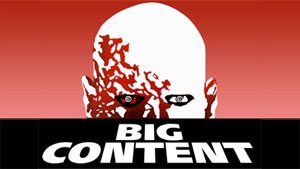 Did I just hear the DMCA’s anti-circumvention precisions creak a little? Ars Technica reports that a judge has ruled educational institutions are legally entitled to rip and stream DVDs that they have legally purchased.
Did I just hear the DMCA’s anti-circumvention precisions creak a little? Ars Technica reports that a judge has ruled educational institutions are legally entitled to rip and stream DVDs that they have legally purchased.
The case involves UCLA ripping and streaming some educational DVDs from Ambrose Video Publishing. Ambrose sued over the anti-circumvention provision violation, insisting its DVDs were sold under a licensing agreement that prohibits rebroadcast and public display. However, the UCLA insisted that fair use gave it the right to rip and stream, and that Ambrose’s catalog specifically says “All purchases by schools and libraries include public performance rights.”
Judge Consuelo B. Marshall sided with UCLA. He noted that the plaintiffs conceded that UCLA had the right to show its DVDs in the classroom, and ruled that UCLA’s streaming service was functionally equivalent. "The type of access that students and/or faculty may have, whether overseas or at a coffee shop, does not take the viewing of the DVD out of the educational context," he wrote. Marshall also ruled that UCLA’s copies of the DVDs were incidental to its lawful streaming service, and was therefore fair use.
He also ruled that the university’s purchase of DVD-ripping software did not constitute “trafficking” in it (another provision of the DMCA prohibits “trafficking” in DRM-breaking tools).
If this case is upheld on appeal, it could have profound implications for universities, which have run afoul of the anti-circumvention provisions in the past. In 2009, I covered the EFF’s request for a DMCA exemption to allow educators to break DRM in order to use clips and excerpts from DVDs for educational purposes (something very similar to what UCLA was doing here). MPAA lawyers insisted professors should just camcord the clips they want off the TV screen instead.
Still, I’m hesitant even to hope this ruling will stand up on appeal, given that the DMCA explicitly prohibits DRM-breaking even by legal purchasers of copyrighted material. And Ars points out that the judge really didn’t explain his reasoning in his ruling, making “him seem less like a hardcore DMCA reformer than a judge who didn’t do his homework.”
And if the case is appealed it will go to the Ninth Circuit, which is notorious for ruling in favor of copyright owners (as in the example of the Vernor v Autodesk case the Supreme Court declined to hear yesterday). Still, I can dream of the DMCA’s anti-circumvention provision going down in flames, if only for a little while.
You might not expect this ruling to have anything to do with e-books except in general terms, but the Chronicle for Higher Education also covers the case (found via Personanondata) and quotes New York Law School professor James Grimmelmann as saying the case involves very similar issues to the Authors Guild v HathiTrust case, concerning universities’ unauthorized digitization of printed books.
“That suit has almost exactly the same sovereign-immunity and standing problems as this one,” Mr. Grimmelmann says. “If the HathiTrust suit were to be decided tomorrow by the same court, it would be dismissed.”
Of course, the legal struggles are far from over either for the UCLA or HathiTrust. (After all, the circuit judge in Vernor v. Autodesk ruled in Vernor’s favor.) But it’s nice to see a glimmer of hope, even if that glimmer will almost certainly be extinguished on appeal.

































Does anybody *read* these rulings before celebrating a copyright victory?
The judge found that:
1) UCLA is a State body and “the Regents and the officers are immune from the
copyright and DMCA claims.”
2) The plaintiff AIME is not the copyright-holder of the works in question, and “Plaintiff AIME, as a matter of law, has failed to establish associational standing” and that since the plaintiff has not shown any damages, “AIME lacks standing to bring this suit on its own.”
3) For the other plaintiff, “Plaintiff AVP has failed to state a claim not barred by sovereign immunity”
4) AVP has a licensing agreement with UCLA, and “the licensing agreement allows Defendants to put the DVD content on the UCLA internet network as part of the provision of the agreement that Defendants could ‘publicly perform’ the DVD content”
5) The streaming was not open to the public: “Plaintiffs do not specifically counter Defendants’ arguments that ‘streaming’ is not distribution or that the Complaint lacks allegations of ‘public display.’ ”
6) The copying of DVDs was a necessary step in the licensed public display: “Defendants copied the DVD in order to be able to put it on the UCLA internet network. Because placing the DVD on the UCLA network is part of the right that Plaintiff licensed to Defendants, the copying was incidental fair use.”
7) Charges of DMCA violations were made without any evidence: “conclusory allegations in the FAC are, by themselves, insufficient to establish a violation of the anti-trafficking provision of the DMCA.”
8) All of the allegations of State law violations are pre-empted by Federal law: “All the factual allegations relate to AVP’s purported copyright infringement claim, and therefore the corresponding state law claims are preempted.”
Bottom line: sovereign immunity totally blocked the lawsuit. Furthermore, UCLA was specifically licensed to do what they did, and as for DMCA violations, no evidence was presented.
“Does anybody *read* these rulings before celebrating a copyright victory?”
No such luck 🙂 They don’t even read the First Sale Doctrine copyright laws that they bang on about on a regular basis.
Excellent post by the way !
According to me the factual allegations must be point out and must be in mind that we use to celebrate a copyright victory. Bulk Scotland CD Replication Services UK